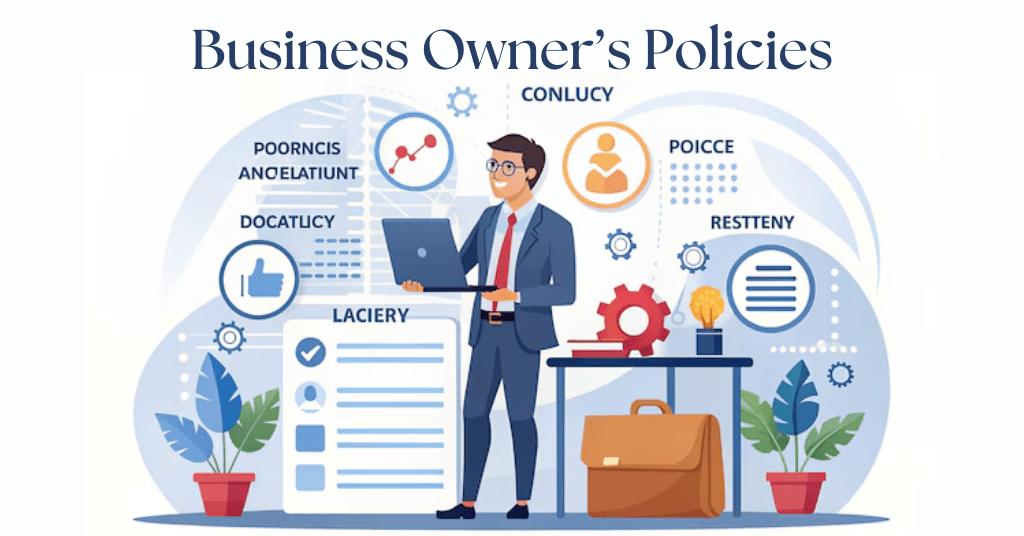How to Save Money on Your Business Insurance Premiums – Business Insurance is an investment that helps to safeguard the company from unexpected risks and liabilities. From property damage to injured employees and third-party claims, proper coverage will allow your business to stay afloat during the difficult times. However, it is not easy when the insurance premiums go up-it becomes a burden on the small and medium-sized businesses who must choose between comprehensive coverage and manageable costs.
Fortunately, reducing business insurance premiums is accessible, and the proper strategies will do the trick. First of all, assess your business requirements and find out how you may maximize coverage without paying too much. Then, from bundling policies to cultivating Risk Management practice, you can select these cost-cutting measures while maintaining effective protection. In fact, the following article discusses practical ways to effectively reduce your business insurance premiums and benefit more from what your money can offer.
How to Save Money on Your Business Insurance Premiums –
Understand Your Coverage Needs –
First, assess specific coverage needs. Over-insurance that is, buying add-ons in policies you do not need-will almost certainly drive up your premiums. Compare, for example, the possible insurance coverage needs of a small bakery with those of a large manufacturing plant. Under-insurance will likely also expose you to catastrophic financial loss.

Cybersecurity Insurance
Start by conducting a risk assessment of your business operations. Identify the most critical areas requiring protection, such as property, liability, or employee-related risks. For example, if your business relies heavily on customer data, prioritize Cybersecurity Insurance. On the other hand, a physical storefront may focus more on property and liability coverage. An experienced insurance advisor will also help customize policies to meet specific requirements. By having customized coverage, you will not pay extra for features irrelevant to your operations, reducing premiums. Review your policy regularly in case your business has expanded or purchased new equipment and update the policy to reflect these changes.
Shop Around for the Best Rates –
Most business owners are stuck with the same insurer for years without any investigation done on possibly greater savings elsewhere. Loyalty has great importance, but it may not always provide the lowest premium rate. The market is so competitive that insurers offer different premiums for almost the same coverage.
First, collect quotations from Several Insurance Companies. Websites which compare quotes can help you compare different policies side-by-side. An insurance broker can also guide you to the most competitive rates since they represent many providers and are familiar with the local markets.

Several Insurance Companies
When buying insurance, provide accurate and detailed information about your business. Details such as location, Industry, and risk mitigation practices can affect premium calculations. Discounts can also be obtained by referring to items such as Fire Safety Equipment or employee training programs. Another major issue is negotiation for the most competitive prices. In a way, insurers appreciate low-risk clients and can offer better prices or conditions if your business shows prudent practices. Comparing rates and negotiating terms ensures you find a policy that fits your budget without compromising coverage.
How to Save Money on Your Business Insurance Premiums –
Bundle Policies for Discounts –
Bundling Insurance policies is a simple yet effective way to reduce premiums. Many providers offer multiple discounts through bundling various policies under one plan. This will minimize cost and streamline any management process. For instance, a firm with general liability, property, and workers’ compensation cover may bundle them into a single cover. Instead of paying separate premiums for each policy, you enjoy a reduced rate. Insurers also often complement the customers that consolidate their policies with added benefits such as even extended coverage options or easier claims processes.

Business Owner’s Policies
Contact your insurance company for bundling opportunities. Some providers offer Business Owner’s Policies (BOPs), which bundle multiple necessary coverages at one discounted price. Make sure the bundled policy is complete enough to provide proper protection without eliminating the need for additional coverage. Bundling policies saves you money, but it also streamlines administrative tasks. Under one insurer for all policies, you cut paperwork and avoid making claims disjointedly, making it a very good strategy even for a small business entity.
Increase Deductibles Strategically –
Deductibles refer to the price you pay for yourself before your insurance policy starts covering. You can get a considerably lower premium if you choose high deductibles. Your business will be considered less risky by the insurers when you are willing to risk more financially.
Before raising deductibles, consider the Financial Health of your business. Does your cash flow comfortably support higher upfront costs for claims? Review the history of claims for your business also; if your business rarely files claims, then a higher deductible may be a cost-effective option.

Financial Health
For instance, if your current deductible is $500 and increasing it to $1,000 reduces your premium by 20%, you will then save money annually. Be sure, however, that you maintain adequate reserve in case of a loss where the higher deductible applies. The striking balance between reduced premiums and manageable risks forms the core of this strategy.
Implement Risk Management Practices –
The perceived risk level of your company has a direct impact on insurance rates. For example, decreasing your risk profile by taking proactive steps can result in cheaper premiums. Begin by recognizing potential risks in your operations and taking appropriate action to mitigate them. For instance, installing fire alarms, surveillance systems, and secure locks reduces property risks, while employee training programs enhance workplace safety. Businesses handling sensitive customer data can invest in advanced Cybersecurity measures to prevent breaches.

Implement Risk Management Practices
Most of the insurers give discounts to companies which show good practices in Risk Management. Openness in terms of documentation regarding safety standards, regulatory compliance, and measures to prevent incident can further strengthen the case for lower premium charges. Risk reduction, in general, will benefit both your operations and your insurance expenses.
Review and Update Policies Regularly –
Businesses change and evolve, but so does their insurance. Periodic review ensures policies stay as relevant and cost-effective as possible. Operations may change because of downsizing or relocation, for example, or purchase new equipment, which all alter your coverage needs.

Review and Update Policies Regularly
Regularly assess your coverage with your insurer or advisor. You might be selling equipment or downsizing staff, and you no longer need certain coverages, thus reducing premiums. Periodic updating will avoid overpayment for obsolete policies while keeping you adequately protected.
Leverage Group or Association Discounts –
Join industry associations to access group insurance discounts. These organizations will typically negotiate better prices for its members through collective buying power. For example, restaurant or Small Business Associations could therefore tailor insurance plans at reduced costs. Research associations in your industry and consider membership as a cost-saving strategy.
Consider Alternative Insurance Options –
It may not be a good fit for some businesses. Self-insurance or captives are other forms of insuring yourself where in you set aside funds for potential claims instead of paying premiums. While this works best for businesses with significant cash flow, you are going to save great deals over time. Determine your risk tolerance as well as your financial capability before engaging in these alternatives.
Conclusion –
Therefore, it is not that you must compromise with the quality for reducing Business Insurance Premiums. One should understand his needs, compare his options, and adopt smart practices to bring the price down without compromising on protection. Start today to review your policies, institute risk management, and check available discounts. These 3 steps will secure the best coverage for your business at the lowest cost-free up resources to concentrate on growth and profit.
Read Also Another Article –
How To Earn $398/Day Using BUSINESS INSURANCE
Frequently Asked Questions –
Q. 1. What is the most effective way to lower business insurance premiums?
Ans – The most effective way to lower business insurance premiums is through a multi-faceted approach. In the first place, evaluate your coverage needs to ensure you are not paying for unnecessary policies. You will then find that having customized coverage that matches the specific risks your business carries reduce excess costs. Shopping around for quotes from a number of insurers also helps you find competitive rates. Third, developing risk management practices, including employee training, and installing safety equipment, has a positive effect on preventing claims, which is often rewarded with low premiums. Last, “bundling” several insurance policies from one insurance company makes managing them easier and usually offers dramatic savings.
Q. 2. How can risk management practices reduce business insurance costs?
Ans – Risk Management practices indicate to insurers that your business is proactive in managing risks. This reduces claims possibilities, making your business less risky for insurers to cover. Improved workplace safety and the installation of security systems, as well as compliance with industry regulation, can help lower premiums. Many insurers provide discounts for businesses that document and implement such measures. Risk Management also protects your operations from disruptions, which is a kind of win-win situation because both your insurance costs and operational risks are minimal.
Q. 3. Why is it important to review business insurance policies regularly?
Ans – Reviewing business insurance policies regularly helps ensure that your coverage complies with your current operations. In due time, most businesses grow, decline, or change their focus, which may alter their insurance requirements.
For instance, selling equipment or reducing personnel may eliminate certain coverages. Regular reviews alert one of these changes, such that there would be overpayment of outdated policies or gaps in coverage. An annual review with your insurer or advisor also allows you to take advantage of new discounts or better policies that might better suit your needs.
Q. 4. How can increasing deductibles help reduce premiums?
Ans – Increasing deductibles lowers premiums because it shifts the financial burden to the business before the insurance coverage takes effect. For this risk, insurers reward businesses with reduced premium rates. This strategy only seems to work for businesses with stable cash flow that can readily absorb more out-of-pocket expenses during a claim. Looking at past claims helps determine if this higher deductible is something practical to have in place, since infrequent claims make this tactic more cost-effective.”
Q. 5. Is bundling insurance policies a good way to save money?
Ans – Bundling insurance policies is an excellent way to save money because insurers often give discounts for bundling multiple policies. This simplifies the management of insurance, reduces administrative chores, and generally cuts the costs.
For example, a company may need liability, property, and worker’s compensation insurance under one bundle. Bundling further allows for holistic cover since all policies are handled by a single provider. It is important to ensure that the package covers all risks with no holes left.
Q. 6. How do industry associations help businesses save on insurance premiums?
Ans – Industry associations frequently collect group insurance rates on behalf of their members, taking advantage of collective buying power to negotiate discounts from insurance providers. Businesses can therefore benefit from the association by having specific insurance packages at reduced costs. These plans are to combat common hazards associated with members in a specific trade. The associations of restaurants can provide liability insurance at a reduced cost, while construction groups might be offered lower premiums on equipment coverage. Membership fees for associations easily get outweighed with the insurance premium-saving endeavors, and this is a good business strategy.
Q. 7. What role does shop for insurance quotes play in reducing premiums?
Ans – Shopping for insurance quotes is crucial in finding the most competitive rate in a highly dynamic market. Various insurers weigh risks differently, hence different premium prices for similar coverage. Businesses will gain an opportunity to understand which providers offer the best value from multiple quotes.
In fact, it is a good chance to bargain on better terms, by showing their Risk Management practice and low claims history. Online tools or using brokers also make it easier to do this with guarantees that you will have broad coverage at the lowest possible cost.
Q. 8. Can alternative insurance options like self-insurance help save money?
Ans – Alternative options, in this case, self-insurance, would save on costs if the business has enough financial stability to handle risks internally; instead of paying premiums to the insurance company, a business sets a side funds for potential claims. This will eliminate all traditional premium costs, and the organization will control its risk management. Self-insurance is best suited for organizations with predictable and manageable risks since unexpected claims can strain the resources of such organizations. This strategy must be considered in consultation with financial and insurance advisers to find out whether it suits the business needs of your organization.








